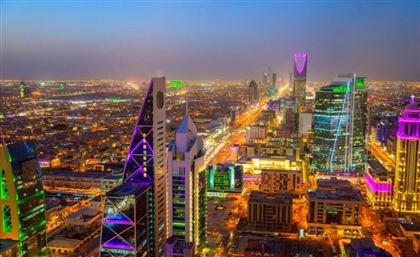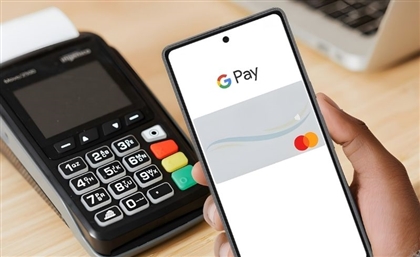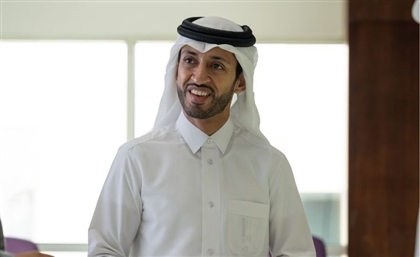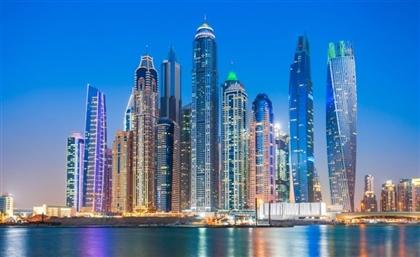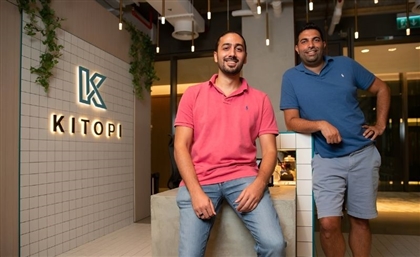Spare: The Fintech Startup Spearheading Open Banking in Kuwait
In this week’s StartupSpotlight, we speak to Dalal Alrayes, co-founder of fintech platform Spare, on the future of open banking in the GCC.
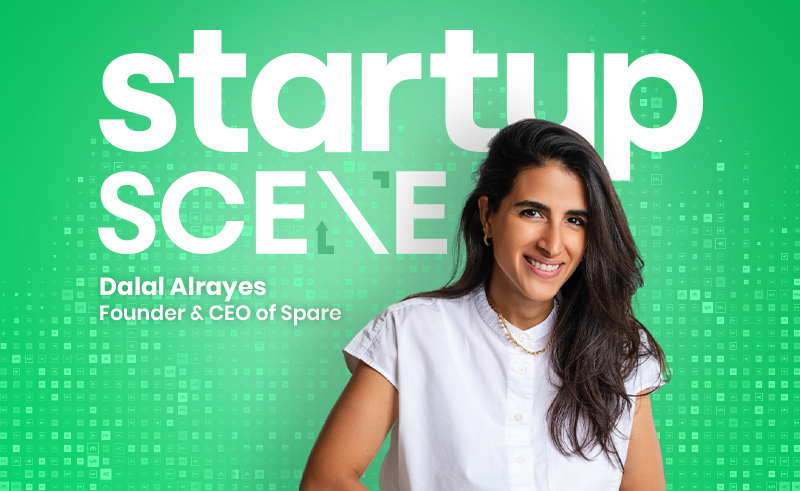
Fintech platform Spare is changing the face of financial services in Kuwait and the GCC region. Since its founding in 2019 by Dalal Alrayes and Saurabh Shah, Spare has been a front runner in the open banking arena, empowering financial institutions and businesses with greater access to financial data.
Investment banker turned entrepreneur Dalal Alrayes first experienced how fintech was revolutionising traditional financial services when travelling to Europe and the US. Wanting to fuel fintech growth in the Middle East, she and her co-founder decided to launch Spare to speed up financial innovation in the region. Today, Spare operates in Bahrain, Saudi Arabia and Kuwait; and plans to expand to Jordan, Oman and Egypt.
“At that time, from about 2018 to 2019, we were seeing the start of a fintech revolution in our region,” Alrayes tells StartupScene. “We thought this was a great opportunity to bring something to the market. With open banking regulations and what’s happening in finance in general, we saw that it could really act as an enabler for us to bridge this gap, between what we have in the region and what’s in the West.”
Today, Spare operates in Bahrain, Saudi Arabia and Kuwait, and plans to expand to Jordan, Oman and Egypt.
PICKING UP MOMENTUM
Since open banking was introduced in 2018, it has gained popularity worldwide, particularly in Europe and the US. But it was during the COVID-19 pandemic that adoption started to really pick up in the region due to the rapid digitization of financial services.
"Diving headfirst into the open banking sector in 2020, in the midst of the Middle East's fintech infancy, was a calculated risk," says Alrayes. "Our region was not just bereft of open banking regulations, but also stood at the threshold of the fintech revolution. Through Spare, we aspired to democratise access to financial data, nurturing the evolution of a broad spectrum of financial products and services.”
Open banking, which essentially provides third-party access to financial data through the use of APIs to create a wide range of products and services, is now gaining momentum in the Middle East. In 2020, Bahrain launched its open banking framework, and last year Saudi Arabia established an open banking lab to fuel innovation in the financial sector.
Meanwhile, the Dubai Financial Services Authority (DFSA) granted its first open banking licence this year, and has plans to implement a regulatory framework soon. Kuwait, Oman and Egypt also have plans to adopt similar initiatives in the near future.
Spare anticipates that open banking will grow to reach $1.2 billion in MENA by 2025.
Unlike the EU and US, however, open banking is used differently in MENA. In the region, it is mostly used for B2C payment options, but Alrayes sees a growing opportunity for B2B solutions as well.
“An essential challenge we face in the region centres on B2B payments," she adds. "The landscape has been swarmed with instant payment solutions primarily designed for retail users, leaving businesses grappling with antiquated methods. Consider the scenario where a business needs to compensate a legal advisor or settle a vendor's invoice. The process is still stuck in a time warp, necessitating manual bank transfers or even cheque writing. That's where open banking has the potential to disrupt and streamline. It can inject automation and speed into these cumbersome processes, ushering in a new era of efficiency in B2B transactions."
DEALING WITH A FRAGMENTED REGION
Although the region is actively embracing open banking, it is still very much fragmented with frameworks varying across countries.
Having different business practices in each country can limit people and business from operating across markets, further curbing payment opportunities and financial transactions. "The prevalent fragmentation undeniably poses its own set of hurdles," Alrayes says. "However, I remain steadfastly optimistic about its evolution. One silver lining is that many countries in the region are drawing from the UK's open banking blueprint. This common reference point means we're seeing a convergence of frameworks across different territories, fostering an environment ripe for cross-border collaboration and innovation in the open banking sphere."
With framework revisions already starting to take place in countries adopting open banking practices in the region, it signals increased opportunity for cross border collaboration and the potential of streamlining regulations in the near future.
"As we move forward, the ecosystem will evolve and use cases will multiply, inevitably calling for revisions to existing frameworks," Alrayes predicts. "Such iterative improvements aren't novel. They've been witnessed in the UK, and echoed in Bahrain. These constant refinements are more than mere adjustments. They pave the way to greater interoperability between markets. This will hopefully lead to a seamless, enhanced experience for users and customers across the region, truly embodying the transformative spirit of open banking."
EVOLVING BEYOND PAYMENTS
Open banking is more than just granting permission of financial data to facilitate payments and transactions. It is also about offering very tailored and personalised products and services that can truly benefit customers.
Being the main custodian of customer data, banks today have the opportunity to capitalise on such insights and develop unique products and features that really capture customer interest. They can also identify loopholes in their offerings and determine solutions to create better customer engagement.
The next step in open banking is open finance. Operating on a much larger scale than open banking, open finance authorises third-party providers to access not only customers’ banking data, but also savings, pension, and insurance amongst other insights. And that’s what Spare is aiming for.
"Our vision at Spare transcends the simple provision of data access," shares Alrayes. "We aim to be purveyors of insights, catalysts of change. Our goal is to equip businesses with the tools to tackle real-world challenges, to bridge process gaps, and to fully unlock the transformative power of open finance. This is not just an extension of open banking. It's a natural evolution, a trend we're observing globally. We're not just data transporters; we're enablers of change, one financial insight at a time."
For now though, Spare is working as the only banking provider in Kuwait to spearhead financial innovation in the country and raise awareness on the benefits of open banking. By doing so, the startup hopes to give customers more control over their finances, enabling them to budget, save and make better decisions with their money. “As we illuminate its benefits and boost public understanding, I foresee an evolution,” she says. “Like online payments, open banking is poised to transition from a budding concept to a mainstream financial tool. It's all about fostering familiarity and trust, and that's where our focus lies."



